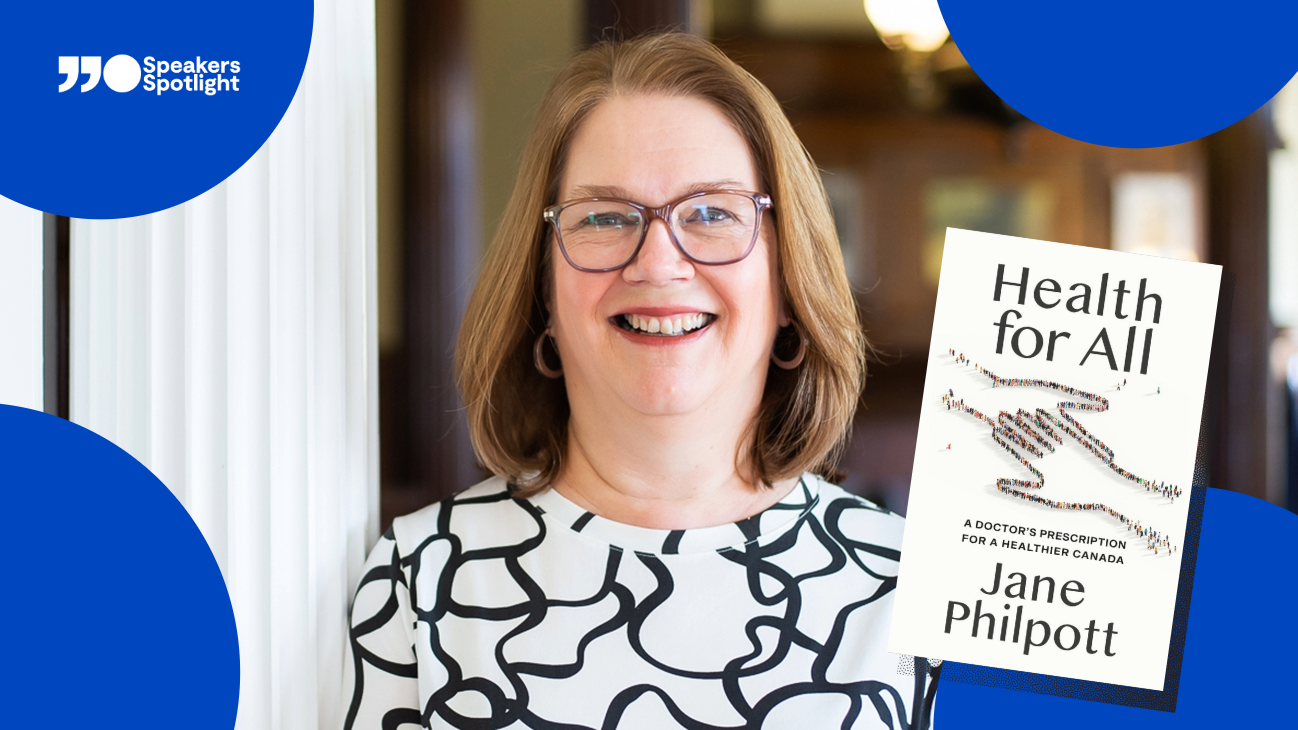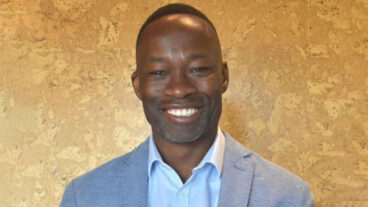Canada’s former Minister of Health, the Honourable Jane Philpott, has spent her life learning what makes people sick and what keeps them well. She has witnessed miracles in modern medicine while also watching children die of starvation in a world with food aplenty.
In her new book, Health for All: A Doctor’s Prescription for a Healthier Canada, Jane calls for a radical disruption in Canada’s health care system; a system that is broken, she says, but not beyond repair. Jane’s vision — drawing from her time as a family doctor in West Africa and Ontario, as a Member of Parliament and cabinet minister, and now as the Dean of the Faculty of Health Sciences and Director of the School of Medicine at Queen’s University — is rooted in a deep-seated commitment to health equity. She outlines an ambitious yet simple once-in-a-generation reset of health systems that will put the health of all Canadians first.
We sat down with Jane to discuss her new book, the “reset” she proposes, and why now is the best time to take action that will strengthen our health care system, better support our health care professionals, and build a healthier future for our country.
Rebuilding Canada’s Health Care System
Speakers Spotlight: You’ve had an extensive career in health care. What led you to write this book now?
Dr. Jane Philpott: I’ve worked in health care for 40 years and I have never seen the issues — the lack of access to health care — in such a serious state as they are today. We’ve reached a crisis point. One many have warned us of, that the system, or lack thereof, would reach a precipice where we would have to make dramatic changes or see it get much worse.
The good news is that when you reach a crisis, it opens people’s minds to consider new ideas. Health for All is my opportunity to put out an idea that is simple and doable. It’s a vision we can actually create — a national health system where every person has access to primary care.
SpSp: What do you see as our biggest challenges ahead in health care? What are the opportunities?
JP: About 20-25% of the population doesn’t have a way in to the doors of healthcare. No doctor, no primary care, no preventative care, no follow-up for their chronic diseases, no well baby care — they’re left to manage on their own.
They will eventually suffer, and some are suffering towards a premature death. It doesn’t have to be this way. We can put our minds together; we can do what other countries, like Norway, Finland, the Netherlands, Australia, New Zealand, are doing. It would be more affordable than it is now and would help us become a healthier country.
Every child in this country has access to education, we would think it unconscionable if children didn’t have a school to go to. There are schools in every neighborhood — if you move, you can move knowing that your child will have another school to attend. That should be doable in health care, but it’s never been that way here — other countries are doing this though. That’s the vision I want to put out there.
SpSp: In your book, you outline a reset of our health system — what do you view as the major resets that we need?
JP: Primary care access — this is the major reset we need. It would have a triple-down effect. It would mean we’re not overburdening emergency rooms — we would have more preventative screening tests, more proactive health care. It would mean people can get discharged from hospitals faster and safer with follow-up care. It would mean Canadians are healthier.
I hope my book will really push us to make changes. People who have read this book have been surprised at how simple my ideas are, and if we can get 1000 Canadians to talk to their local politicians about this, we can make real change.
SpSp: What is the role of the government in making this reset happen?
JP: We need real leadership on this, we need legislation. Right now, the federal government hands out money to provinces telling them to do better and provinces promise they will. But it never works because there are no strings attached. We need strings. The government needs to transfer funds specific to primary care, and if provinces don’t deliver and ensure their people have access to that care, then the federal government needs to take the money back.
This is a serious topic, but again, they are doable changes. My book, as are my keynote presentations, is a message of hope and optimism. Though the narrative around health care is often doom and gloom, there is a hopeful way forward and a relatively simple solution. That is what I provide to readers through my book and audiences through my keynotes.
SpSp: What can individuals do to support a healthier future for ourselves and for our country?
JP: Read the book and share the ideas in it. The rising tide of public opinion moves the needle on political changes.
This book is an interesting mix — it explores health policy, going under the surface of it and why it matters, as well as the social and spiritual determinants of health. I talk a lot about us as individual people and what it takes for us to be healthy, what kind of social system we need, and how politics can help. Being healthy is more than just having a health care system, it’s about being well as individuals.
I draw on Indigenous teachings that I learned while serving as Minister of Health — the First Nations Mental Wellness Continuum Framework of hope, belonging, meaning, and purpose. I explore the fact that you can talk about a good clinical system, but people also need to be well deeply, on the inside, on their soul. So, the book also explores some of those roots of wellness, which is unusual for a book about healthcare, but I hope it starts a lot of conversations because we need to start thinking of ourselves beyond just a physical body, but as a community.
Contact Us to Learn More
As a driving force behind the national conversation on improving access to primary health care, the Honourable Jane Philpott delivers compelling talks on building a healthier future for Canada.
Contact us to learn more about Jane and what she can bring to your next event.




